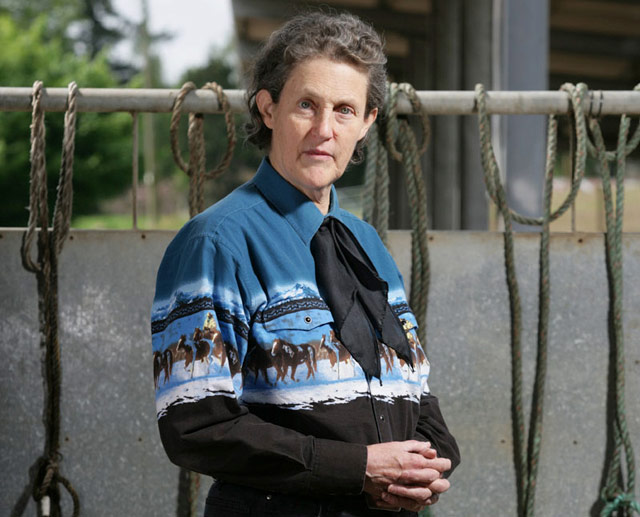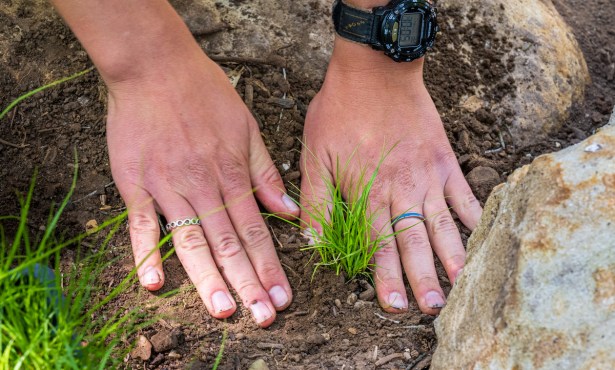Why We Need All Kinds of Minds
Communicating with Temple Grandin, Who Comes to the Granada Theatre on May 10

You can’t call Temple Grandin on the phone. She has to call you, and unfortunately it was bad timing when she called. Our beautiful black lab of 13 years was in her last hours, the veterinarian was coming over to the house, and we were all upset about it.
“I hope you don’t mind,” I began. “But I think you’ll understand; my dog is passing, and I can’t talk right now.” So we arranged another time.
When we spoke again, Grandin, who has a no-nonsense, blunt way of communicating, plunged right into such a wide range of subjects it was startling — from language-based knowledge to how animals think, from the myths of autism to Albert Einstein. She’ll likely do the same when she speaks at the Granada Theatre on May 10.
Many people recognize Grandin’s story from the award-winning HBO program Temple Grandin starring Claire Danes. Grandin is an expert on animal behavior. One half of the cattle in the United States are handled in equipment she has designed that emphasizes humane treatment.
“I think we can eat meat ethically,” she says, “but we’ve got to give animals a good life.” Grandin should know. She has spent 30 years looking at the beef industry through the eyes of a cow.
Temple Grandin is also autistic. As a child, she had all the classic symptoms of autism: speech delay, tantrums, repetitive behavior, and supposedly lacking in empathy. But her mother refused to accept institutionalization and bucked the system.
“My mother knew how to push me, how to stretch me just out of my comfort zone,” Grandin recounted. “She taught me old-fashioned etiquette.”
She attributes her success to thinking visually. “Visual thinking gave me a whole lot of insight into the animal mind. An animal is sensory-based, not verbal — thinks in pictures, thinks in sounds, thinks in smells,” she explained.
“The fundamental difference between us and animals,” she said, “is language-based learning.” In other words, you’re reading this article, and they are not. The issue with language-based thinking is that it lumps everyone who thinks differently into the problem category. “Because of all the testing, a lot of kids are shunted into special ed when they ought to be enhancing their unique abilities,” she explained. “Schools have taken out all the hands-on classes — cooking, woodworking, art, making stuff, which teaches practical problem solving.” As for autism, “It’s a behavioral profile half based on science and half based on doctors bickering around a conference table.”
We were about to wrap up when Grandin interrupted. “I’m really sorry to hear about your dog,” she said. “But that was the right thing to do. I talk about ethics to vet students. You can’t explain to a dog why you are continuing a painful existence.” So much for the myth that autistic people lack empathy and can’t think of others.
Temple Grandin is anything but neurotypical, yet she proves that different is certainly not less.
UCSB Arts & Lectures brings Temple Grandin to the Granada Theatre on Tuesday, May 10. Call (805) 893-3535 or see artsandlectures.sa.ucsb.edu.



